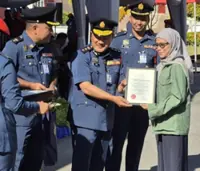Kuala Lumpur General Hospital (HKL) —AZMAN GHANI/The Star
PETALING JAYA: The medical fraternity is suggesting a public-private partnership by tapping the underutilised pool of private general practitioners (GPs) to help alleviate congestion at hospital emergency departments.
Malaysian Medical Association (MMA) president Dr Muruga Raj Rajathurai said that the private sector’s role through public-private collaboration should be one of the ways forward in the Health Ministry’s engagements.





